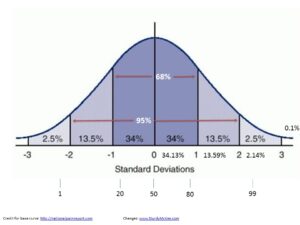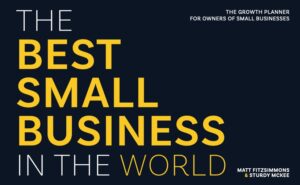“Excellence is a form of deviance.” – Dave Rendall
I’ve been fascinated, and a little obsessed, with this concept ever since the first time I heard Dave say it. “Excellence is a form of deviance.” Excellence is not normal.
I got told I was special when I was growing up, as many of us tell our  children. Maybe we even are, outside of our parents’ eyes. But special at what? And even while that was going on, there were other areas where I was told I “needed to improve”. My handwriting is one of those areas. I don’t know how to write cursive. I truly don’t. It’s not how my brain works, but it was required in school. Guess what my writing looked like! No one could read it. I got bad marks and corrective action in penmanship. And lest you don’t believe me, my mother was still sending me handwriting workbooks in college. I guess they couldn’t read my letters…
children. Maybe we even are, outside of our parents’ eyes. But special at what? And even while that was going on, there were other areas where I was told I “needed to improve”. My handwriting is one of those areas. I don’t know how to write cursive. I truly don’t. It’s not how my brain works, but it was required in school. Guess what my writing looked like! No one could read it. I got bad marks and corrective action in penmanship. And lest you don’t believe me, my mother was still sending me handwriting workbooks in college. I guess they couldn’t read my letters…
When I met Dave, he talked about working on our strengths in order to be truly exceptional. He went on to talk about how even our weaknesses are our strengths, just in a different context. I thought back to this handwriting thing, and immediately thought about the different context idea. It resonated with me because I lived in China in the year leading up to the events in TianAn Men. And when I lived in China, I received praise for my handwriting. It wasn’t great, but for someone just learning, my instructors were pretty impressed. At least they said so. And I liked that, and spent more time practicing.
And think about that for just a minute. We tend to want to practice what we are good at, in areas where we show promise. But we are often told that we should be working on our weaknesses. “A chain is only as strong as it’s weakest link.” Well, guess what, we aren’t chains made of links!
And when we practice really hard on those things we aren’t particularly good at, how do we feel about our progress? Do we feel excellent? Are we motivated to do more? Or do we tend to avoid them and go on to something else?
And another thing about chains. Chains are pretty good at pulling. Chains suck at pushing!
If you are super active, you like working with people, and being physically challenged, will you make the best coder or programmer? Would you make a better guidance counselor? Or would you maybe make an even better firefighter, or athlete?
So, “Excellence is a form of deviance.” Excellence is not normal! By it’s very definition, it is not normal. What are you excellent at, or where do you have the potential to become excellent?
 Gallup Strengths Finders is a cool tool that you can use for yourself and for your entire team. It maps your top 5 strengths out of 34 traits in 4 categories:
Gallup Strengths Finders is a cool tool that you can use for yourself and for your entire team. It maps your top 5 strengths out of 34 traits in 4 categories:
- Executing
- Influencing
- Relationship Building
- Strategic Thinking
You can have your entire team take the survey and map them all out on a grid that Gallup provides for you. Everyone can see what everyone else is good at.
My #1 strength is “Strategic”, defined as creating alternative ways to proceed, and being able to quickly spot relevant patterns & issues. “Leaders with great “Strategic Thinking” strengths are the ones who keep us all focused on what could be. They are constantly absorbing and analyzing information and helping the team make better decisions. People with strength in this domain continually stretch our thinking for the future,” according to Gallup.
But, not a single one of my top 5 strengths falls in another of the 4 main categories, “Executing”. Gallup says, “Leaders with a dominant strength in the Executing domain know how to make things happen. When you need someone to implement a solution, these are the people who will work tirelessly to get it done. Leaders with a strength to execute have the ability to “catch” an idea and make it a reality.” But note, it says “catch” an idea, not generate an idea. The person who is really good at making something happen may not be the one to come up with the strategy, the solution, and vice versa.
So, how do you deal with this? Do you try to be better at what you are not good at, improving your weaknesses? This is what our schools often tell us to do.
If I concentrate on my weakness, maybe someday I’ll get to the middle of that bell curve. Maybe I’ll achieve “normal”, or average. But, what if instead I am able to work with someone, or hire someone, who is really good at what I am not? Isn’t that how great teams are crafted?
No one can be great in all 34 traits. At least I can’t. And if we all go around working on the 29 things not in our top 5, can we really hope for anything more than mediocrity?
So, back to Dave’s premise that if you work on what you are really good at, and work really hard to further improve that, what will happen? Can you hope to eventually be truly exceptional at that thing? Even if you have to shift context a little to get to a place where your strength is valued and valuable, isn’t that likely more efficient, and more likely to succeed, than trying to be better at the things in your bottom 5?
It’s easy to forget that there are other people who are good at those things in your bottom 5. And not even just good at those things, but there are people who love to do the things in your bottom 5. Finding those people and bringing them onto your team, AND knowing when to pass the ball to them, is a basic key to your success. Once past a certain point, you simply cannot do everything in your business. That’s why you join with a partner, hire employees, and find the best team of specialists you can, in order to outsource to them the things they excel at and love to do.
And if you’re still a little stuck in the mindset that you are the best at all the things in your business. If you feel a need to be the hero, and solve all the problems. If you hear even a little bit of a voice resisting this idea and whispering, “Yeah, but…” into your ear, imagine this.
You are a kid and join a Little League team, and your coach puts you in at right field. He then runs out to catch the ball for you. Not once, but 3 times during the game. Not only will the umpire likely kick him out, but how would you feel? Would you feel trusted? Valued? Important? Would you want to come and play in the next game?
What is the coach’s role? Is the coach’s role to run out on the field and do things for the players. Is the coach’s role to suit up and try to blend in on the field?
The coach’s role is to pick the players, teach them the most critical things first, and put them in positions to succeed. The coach’s role is to continue to work with the players, and teach and drill the players on the next critical thing, and then the next, until they have a level of mastery of their position and the game. The coach’s role is to get each player to where they can begin to work on more subtle skills and drills. The coach’s role is to empower the players to succeed. The coach’s role is to not play for them.
So, what position are you currently playing on your team? Are you the star pitcher, as well as coach? Are you supposed to be both? Or are you supposed to be THE Coach? Your business needs a coach. And you are, very likely, what makes your business exceptional.
If you aren’t completely and fully the coach, ask yourself the following. What is happening in your business right now? And what is the one thing you can (and will) commit to doing this week to move toward where you want to be, where you can be?
Write the answers to those questions down somewhere where you are going to see them each day of the coming week.
And if you get stuck and need some help moving forward, give us a call. That’s why we exist.
+1.415.350.3663
Good luck!
Please share this with someone you know and let them know they can subscribe to future updates here, at the bottom.
